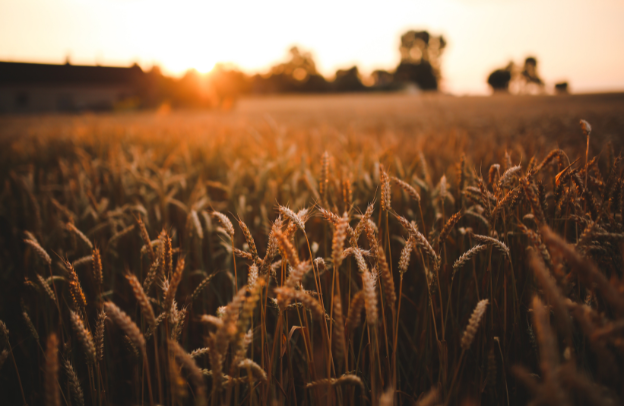Revitalizing African Agriculture and Communities through Indigenous Knowledge Systems

Do you remember the scent of the soil after a heavy rain, the hum of the wind whispering through the trees, or the taste of a meal prepared with plants your ancestors have grown for centuries? These experiences are more than just memories — they are part of a living tradition, a knowledge system that has sustained African communities for millennia. Yet, in the rush of modernity, these practices are often dismissed or forgotten.
Learn How to Leverage Your Story through our Story To Asset Transformation (S.A.T) Framework.
Now here is the question. How can reconnecting with the wisdom of your ancestors offer solutions to today’s pressing challenges, like food insecurity, poverty, and climate change? And why is it crucial to preserve this invaluable knowledge for future generations?
The answers lie in Indigenous Knowledge Systems (IKS) — systems of knowledge that have been shaped by generations of Africans living in harmony with their environment.
These systems, often grounded in agriculture, spirituality, and community wisdom, hold the key to not just understanding the past but addressing the pressing challenges of the present.
In this article, we will explore the significance of IKS, how it can be integrated with modern scientific methods, and why it’s essential for the African diaspora to reconnect with this rich heritage.
Understanding Indigenous Knowledge Systems
Indigenous Knowledge Systems (IKS) are not simply old customs or forgotten rituals; they are holistic worldviews that integrate spirituality, ecology, and community values. IKS is deeply rooted in a profound understanding of the natural world, passed down orally through generations.
But what makes IKS truly unique is its emphasis on sustainability, respect for nature, and community solidarity. In the context of agriculture, these systems include techniques that ensure soil fertility, promote biodiversity, and support food security without the need for synthetic chemicals or genetically modified organisms (GMOs).
In African communities, IKS is closely intertwined with cultural identity. The belief that the land, plants, and animals are not mere commodities, but integral parts of a spiritual, interconnected whole is fundamental to how these systems operate.
Every practice — from planting crops to harvesting — is seen as part of a larger cosmic balance, where respect for nature and adherence to spiritual values are paramount. As modern science continues to grapple with climate change and environmental degradation, it is this ancient wisdom that holds the potential to guide us toward more sustainable futures.
The Mopane District Study: A Case for Reclaiming Indigenous Agricultural Knowledge
A study conducted between 2005 and 2006 in two villages in Limpopo Province, South Africa, offers compelling insights into the power of IKS in addressing modern challenges. The study focused on the agricultural practices of Shangaan/Tsonga-speaking communities in the Mopane district, where traditional farming methods are still very much alive.
The study’s primary objectives were to explore how IKS could integrate with scientific agricultural knowledge to improve food security and reduce poverty. One key finding was the critical role of African Leafy Vegetables (ALVs) — Indigenous crops such as morogo (African spinach) and imbumba (Amaranth) — in improving the nutrition and health of local households.
Despite the prevailing poverty and drought conditions, these crops provided a vital source of food security, showcasing the resilience of IKS in the face of ecological challenges.
But what makes the study particularly valuable is its call for integrating IKS with modern scientific knowledge. While Western agriculture often focuses on high-yield crops and industrial methods, IKS offers a more sustainable, community-based approach.
See also Building a Community Around Your Podcast: How Creative Entrepreneurs Can Engage Listeners
Local knowledge about soil health, seed preservation, and crop rotation has been perfected over generations, making it indispensable for long-term agricultural resilience. The study concludes that collaboration between IKS and modern scientific methods could not only improve food security but also create more sustainable agricultural practices.
The Role of Science and Technology in Integrating Indigenous Knowledge
You may wonder how science and technology fit into the picture. After all, IKS often seems at odds with Western ideas of progress and development. However, the Department of Science and Technology (DST) in South Africa has recognized the power of IKS and its role in national development.
Through the National Indigenous Knowledge Systems Office (NIKSO), there has been a concerted effort to preserve, document, and promote IKS, integrating it into national innovation strategies aimed at fostering social and economic development.
The DST’s mandate is clear: IKS is not outdated or backward; rather, it is a living, evolving system that can play a pivotal role in addressing modern-day challenges. The integration of IKS with Western scientific methods has already begun in certain areas.
For example, agricultural extension services in rural South Africa are beginning to include indigenous farming practices as part of their training programs, offering a blend of both knowledge systems to farmers.
Eva Perroni is a freelance researcher, writer, and activist who uses food as a lens to examine critical political, social, environmental, and cultural issues. Holding an MA in Development Studies from the University of Melbourne.
In her article, Five Indigenous Farming Practices Enhancing Food Security, she emphasizes how indigenous peoples have long contributed vital ecological and cultural services.
She said that by preserving traditional farming knowledge and practices, they help safeguard biodiversity, strengthen food security, and protect the planet’s natural resources. Indigenous peoples, approximately 370 million worldwide, inhabit or manage 22% of the earth’s land, which is home to 80% of the planet’s biological diversity.
The Declaration affirms their right to steward and develop their land and resources by their ancestral farming traditions.
The key is not to replace one system with another but to create synergies that bring out the strengths of both. Modern technology — from mobile apps to advanced agricultural tools — can help farmers preserve and share indigenous knowledge more effectively.
Meanwhile, the scientific community can learn from IKS’ deep understanding of ecological balance and sustainable farming practices, applying these lessons to broader environmental challenges.
Spirituality, Rituals, and the African Cosmology of Knowledge
One aspect of IKS often overlooked by mainstream science is the spiritual dimension that shapes African agricultural practices. Many traditional African farming techniques are intertwined with rituals, taboos, and cosmological beliefs that govern the proper care of land, crops, and animals.
These practices are based on the understanding that humans are not separate from nature but part of an intricate web of life.
Take, for example, the practice of seed saving. In many African communities, the act of saving and replanting seeds is not only practical but spiritual. Seeds are considered sacred, often passed down through generations as part of a family or community’s heritage.
The taboos around seed selection, storage, and planting are believed to ensure that crops thrive and that the land remains fertile for future generations. While Western science often dismisses these practices as superstitions, they are based on deep ecological knowledge, honed over centuries of observation and interaction with the environment.
By integrating spirituality into agricultural practices, African communities have developed resilient farming systems that thrive in some of the harshest conditions on Earth.
See also Cassava Farming in Nigeria – A Gateway to Agribusiness Success for the African Diaspora
Incorporating these spiritual and ecological practices into modern agriculture could offer profound solutions to issues like drought and desertification, which are exacerbated by climate change.
Reconnecting with Your Roots: The Power of IKS for the African Diaspora
For members of the African diaspora, reconnecting with IKS is more than just an academic exercise. It is a way of reclaiming identity, heritage, and resilience in the face of ongoing struggles.
By learning about traditional farming practices, cooking indigenous foods, and respecting the spiritual customs that come with them, you can not only strengthen cultural ties but also contribute to the global conversation on sustainability and food security.
Imagine if you could cultivate African leafy vegetables in your backyard, share the wisdom of your ancestors with your community, and use your platform to highlight the importance of IKS in modern development.
The possibilities are endless, but it starts with a conscious effort to engage with and document this invaluable knowledge.
Why You Should Care
As the world faces increasingly urgent issues like food insecurity, climate change, and poverty, the knowledge your ancestors have cultivated over centuries could offer the solutions we need today.
By recognizing IKS as a valid, living body of knowledge, you help elevate it to the global stage, ensuring its survival and relevance for future generations. The integration of IKS with modern technologies offers a unique opportunity for innovation that respects both tradition and progress.
So, what can you do?
Well, start by learning about the agricultural practices, rituals, and knowledge systems of your ancestors. Share this knowledge within your communities, support local farmers who use these techniques, and advocate for policies that respect and incorporate IKS into national and global development strategies.
Reclaim your roots, reconnect with the land, and contribute to a future that is as sustainable and resilient as the knowledge passed down to you.
Learn How to Leverage Your Story through our Story To Asset Transformation (S.A.T) Framework.





